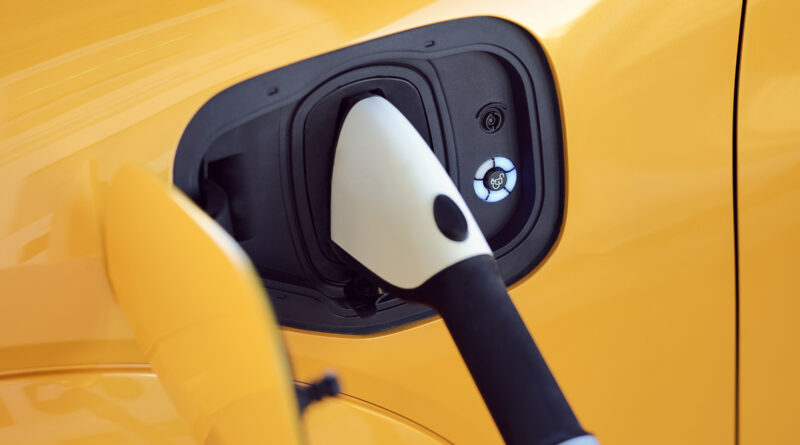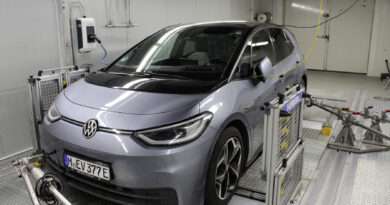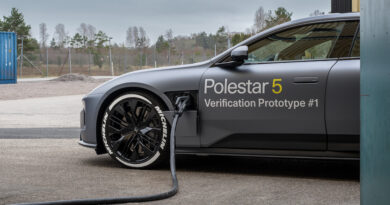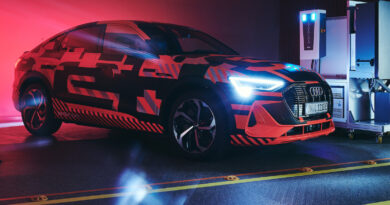StoreDot 5-minute EV charging to full battery
The first 1000 examples of a battery promised to enable full recharging of an EV in just five minutes have been produced in a factory in China, The Guardian reports.
The lithium-ion cell developed by Israeli battery company StoreDot features an innovative type of negative electrode. It uses semiconductor nanoparticles in place of the mostly carbon-based electrodes in wide use today. This change enables speedier movement of charge-carrying lithium ions, putting dramatically reduced EV charging times within reach.
StoreDot refers to the batteries as XFC batteries, denoting extreme fast charging. It claims to have changed the chemistry of the battery cells to allow the extremely quick charge.
StoreDot claims its technology will make it possible to deliver more than 450km of driving range to an EV in five minutes. The only problem is that this will require more powerful chargers. The speed of EV charging depends on the power supply.
Still, even using existing fast chargers, the new cells could make adding more than 150km of driving range in five minutes a reality for EV drivers.
“A five-minute charging lithium-ion battery was considered to be impossible,” StoreDot founder and chief executive Doron Myersdorf told The Guardian.
“But we are not releasing a lab prototype, we are releasing engineering samples from a mass production line. This demonstrates it is feasible and it’s commercially ready.”
The trial manufacturing run took place at a factory owned by StoreDot’s Chinese production partner, Eve Energy. While the nanoparticles of these cells were built around the element germanium, StoreDot is already working on a similar electrode that uses much cheaper silicon. The company is already working on prototypes that it expects to ready later this year.
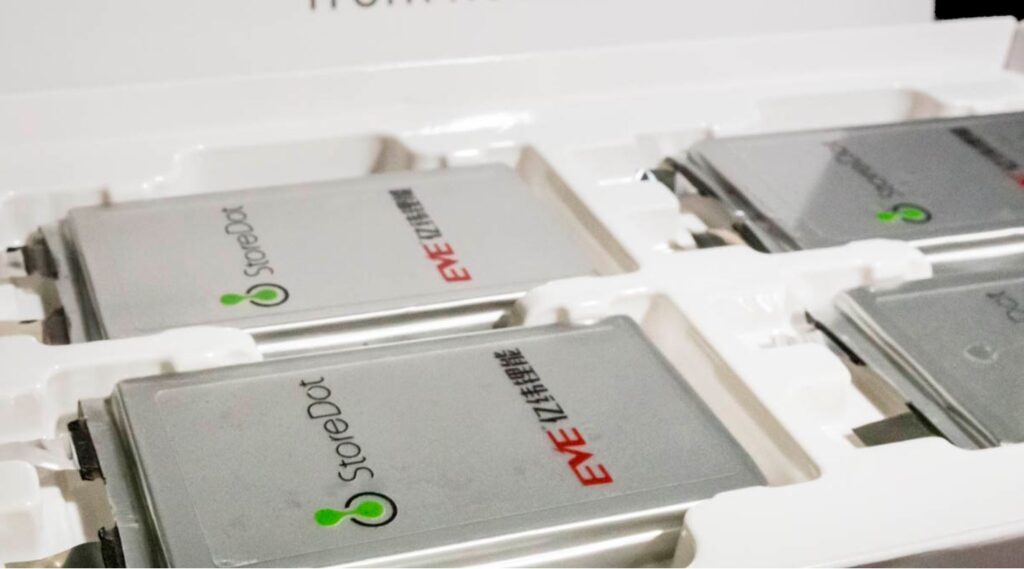
StoreDot says it has worked to ensure the XFC batteries are safe and able to be mass produced.
“Our team of top scientists has overcome inherent challenges of XFC such as safety, cycle life and swelling by harnessing innovative materials and cell design,” said Myersdorf in a press release announcing the technolog.
“Today’s announcement marks an important milestone, moving XFC for the first time beyond innovation in the lab to a commercially-viable product that is scalable for mass production. This paves the way for the launch of our second-generation, silicon-dominant anode prototype battery for electric vehicles later this year.”
Big-name companies have bought into the Israeli company, which was founded in 2012. Daimler, which owns Mercedes-Benz, and Samsung invested in 2017. A year later BP also purchased a slice of StoreDot.
BP advanced mobility vice president Roy Wiliamson said in a video in flagging the technology late in 2019 that such extreme fast charging would be critical to the uptake of EVs.
“Convenience will be a key factor for consumers in how they want to charge their electric vehicles and we believe speed is going to be critical,” said Williamson.
Myersdorf claims his company’s cells will not be more expensive to manufacture (batteries are the most expensive component of an EV). Industry experts estimate that they could be in large-scale production in three to five years.
Other companies, including Tesla, are also working to develop commercially producible silicon-based electrodes for lithium-ion batteries, which would offer similar advantages to StoreDot’s.
StoreDot will have its work cut out, though, with several car companies also desperately working to reduce charging times and lower battery costs. Most notably Tesla, which outlines its own five-step plan for cheaper, better batteries, and Hyundai, which is promising similar charging times from its incoming Ioniq 5 dedicated EV .

